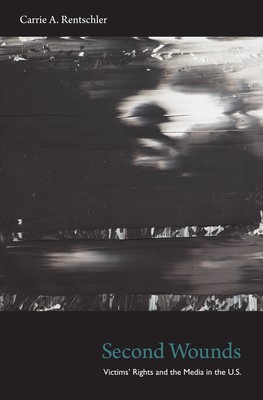
- We will send in 10–14 business days.
- Author: Carrie A Rentschler
- Publisher: Duke University Press
- ISBN-10: 0822349493
- ISBN-13: 9780822349495
- Format: 15.6 x 23.6 x 1.7 cm, softcover
- Language: English
- SAVE -10% with code: EXTRA
Reviews
Description
The U.S. victims' rights movement has transformed the way that violent crime is understood and represented in the United States. It has expanded the concept of victimhood to include family members and others close to direct victims, and it has argued that these secondary victims may be further traumatized through their encounters with insensitive journalists and the cold, impersonal nature of the criminal justice system. This concept of extended victimization has come to dominate representations of crime and the American criminal justice system. In Second Wounds, Carrie A. Rentschler examines how the victims' rights movement brought about such a marked shift in how Americans define and portray crime. Analyzing the movement's effective mobilization of activist networks and its implementation of media strategies, she interprets texts such as press kits, online victim memorials, and training materials for victims' advocates and journalists. Rentschler also provides a genealogy of the victims' rights movement from its emergence in the 1960s into the twenty-first century. She explains that while a "get tough on crime" outlook dominates the movement, the concept of secondary victimization has been invoked by activists across the political spectrum, including anti-death penalty advocates, who contend that the families of death-row inmates are also secondary victims of violent crime and the criminal justice system.
EXTRA 10 % discount with code: EXTRA
The promotion ends in 10d.17:15:48
The discount code is valid when purchasing from 10 €. Discounts do not stack.
- Author: Carrie A Rentschler
- Publisher: Duke University Press
- ISBN-10: 0822349493
- ISBN-13: 9780822349495
- Format: 15.6 x 23.6 x 1.7 cm, softcover
- Language: English English
The U.S. victims' rights movement has transformed the way that violent crime is understood and represented in the United States. It has expanded the concept of victimhood to include family members and others close to direct victims, and it has argued that these secondary victims may be further traumatized through their encounters with insensitive journalists and the cold, impersonal nature of the criminal justice system. This concept of extended victimization has come to dominate representations of crime and the American criminal justice system. In Second Wounds, Carrie A. Rentschler examines how the victims' rights movement brought about such a marked shift in how Americans define and portray crime. Analyzing the movement's effective mobilization of activist networks and its implementation of media strategies, she interprets texts such as press kits, online victim memorials, and training materials for victims' advocates and journalists. Rentschler also provides a genealogy of the victims' rights movement from its emergence in the 1960s into the twenty-first century. She explains that while a "get tough on crime" outlook dominates the movement, the concept of secondary victimization has been invoked by activists across the political spectrum, including anti-death penalty advocates, who contend that the families of death-row inmates are also secondary victims of violent crime and the criminal justice system.


Reviews